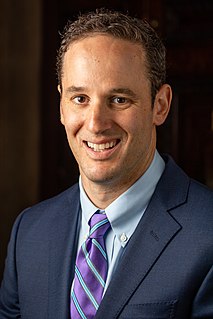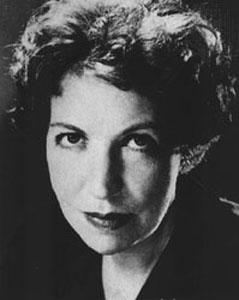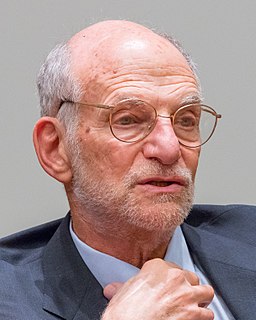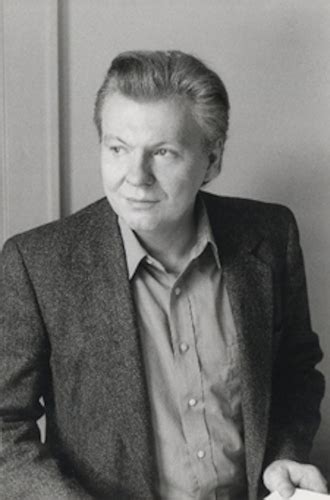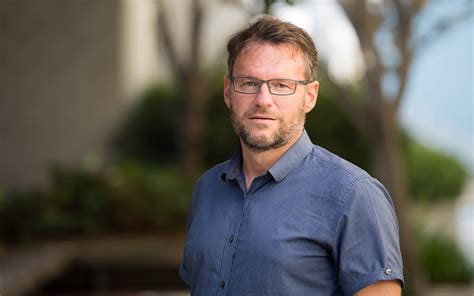Top 188 Clocks Quotes & Sayings - Page 3
Explore popular Clocks quotes.
Last updated on April 15, 2025.
How men envy and often hate these warm clocks, these wives, who know they will live forever. So what do we do? We men turn terribly mean, because we can't hold to the world or ourselves or anything. We are blind to continuity, all breaks down, falls, melts, stops, rots, or runs away. So, since we cannot shape Time, where does that leave men? Sleepless. Staring.
The future is fastidious and punctual. It keeps perfect time and arrives everywhere on the dot. In contrast, its slacker brother the past has no use for clocks or appointments. It comes and goes as it pleases in our memory, camping out wherever the hell it damn well wants to in there. Untrustworthy, prone to exaggeration, biased- you wouldn't lend it ten cents, but it *sure* can be charming and seductive when it feels like it.
In that moment, when watches and clocks misbehave and you feel a cold vapor wrap itself around your heart, you unconsciously draw a line at the bottom of a long column of numbers and come up with a sum. Perhaps it's one that fills you with contentment and endows you with a level of courage and an acceptance that you didn't know you possessed.Or maybe not.
To see ten thousand animals untamed and not branded with the symbols of human commerce is like scaling an unconquered mountain for the first time, or like finding a forest without roads or footpaths, or the blemish of an axe. You know then what you had always been told -- that the world once lived and grew without adding machines and newsprint and brick-walled streets and the tyranny of clocks.
Many things they sawe with us as mathematicall instruments, sea compasses... spring clocks that seemed to goe of themselves - and many other things we had - were so strange unto them, and so farre exceeded their capacities to comprehend the reason and meanes how they should be made and done, that they thought they were rather the workes of gods then men.
It was always intriguing that flies had two peaks of activity, in the morning and evening, with a siesta during the day and not very much activity at night. There are several ways to explain that, but one possibility was that there were two clocks running - one governing the morning peak and one governing the evening peak.
It was about eleven o'clock in the morning, mid October, with the sun not shining and a look of hard wet rain in the clearness of the foothills. I was wearing my powder-blue suit, with dark blue shirt, tie and display handkerchief, black brogues, black wool socks with dark little clocks on them. I was neat, clean, shaved and sober, and I didn't care who knew it. I was everything the well-dressed private detective ought to be. I was calling on four million dollars.
I can never understand why I should eat at one or sleep at eleven, if it is, as it often is, my one and my eleven and nobody else's. For, as between the clock and me alone, one and eleven and all other o'clocks are mine and I am not theirs. But I have known men and women living in hotels who would interrupt a sunset to go to dine, or wave away the stars in their courses to go to sleep, merely because the hour had struck.
Cripple God, who always desires more than he's able to have, and doesn't always realize this to begin with. Who has built clocks, but not the time that they measure. Has built systems or mechanisms that serve particular purposes, but they too have outgrown these purposes and betrayed them. And has created an infinity that, from being the measure of the power he was supposed to have, turned into the measure of his boundless failure.
...yesterday and today and tomorrow are not an arrow that shoots from past to present to future; rather all tenses, and sleeping and waking, mix and cohabit in an atemporal duration beyond clocks and calendars. The Aboriginal world began long ago when the Ancestors sang in Dreamtime the cosmic rhythms that give shape to the things we see, and it is the beginning right now, when a living Tiwi sings the Dream songs that continue, or are, the world.
Instead of things I'm good at, it might be faster to list the things I can't do. I can't cook or clean the house. My room's a mess, and I'm always losing things. I love music, but I can't sing a note. I'm clumsy and can barely sew a stitch. My sense of direction is the pits, and I can't tell left from right half the time. When I get angry, I tend to break things. Plates and pencils, alarm clocks. Later on I regret it, but at the time I can't help myself. I have no money in the bank. I'm bashful for no reason, and I have hardly any friends to speak of.
Time is a relationship that we have with the rest of the universe; or more accurately, we are one of the clocks, measuring one kind of time. Animals and aliens may measure it differently. We may even be able to change our way of marking time one day, and open up new realms of experience, in which a day today will be a million years.
In comparing these two writers, he [Samuel Johnson] used this expression: "that there was as great a difference between them as between a man who knew how a watch was made, and a man who could tell the hour by looking on the dial-plate." This was a short and a figurative statement of his distinction between drawing characters of nature and characters only of manners, but I cannot help being of opinion, that the neat watches of Fielding are as well constructed as the large clocks of Richardson, and that his dial plates are brighter.
The clocks were striking midnight and the rooms were very still as a figure glided quietly from bed to bed, smoothing a coverlid here, settling a pillow there, and pausing to look long and tenderly at each unconscious face, to kiss each with lips that mutely blessed, and to pray the fervent prayers which only mothers utter.
As a species, taking all in all, we are still too young, too juvenile, to be trusted. We have spread across the face of the earth in just a few thousand years, no time at all as evolution clocks time, covering all livable parts of the planet, endangering other forms of life, and now threatening ourselves.
Governments, like clocks, go from the motion men give them, and as governments are made and moved by men, so by them they are ruined too. Wherefore governments rather depend upon men, than men upon governments. Let men be good, and the government cannot be bad; if it be ill, they will cure it. But if men be bad, let the government be never so good, they will endeavour to warp and spoil it to their turn.
We can either passively continue on the road to utter domestication and destruction or turn in the direction of joyful upheaval, passionate and feral embrace of wildness and life that aims at dancing on the ruins of clocks, computers and that failure of imagination and will called work. Can we justify our lives by anything less than such a politics of rage and dreams?
In this world, there are two times. There is mechanical time and there is body time." "They do not keep clocks in their houses. Instead, they listen to their heartbeats. They feel the rhythms of their moods and desires." "Then there are those who think their bodies don't exist. They live by mechanical time. They rise at seven o'clock in the morning. They eat their lunch at noon and their supper at six. They arrive at their appointments on time, precisely by the clock.
Im's offspring stare at stars and make clocks that calculate useless happenings like the angle of a hawk's claws as it strikes its prey. They demonstrate their contraptions and everyone marvels. My children get drunk, confuse a herd of cows with an enemy regiment, and slaughter the lot, screaming like lunatics until the entire army panics.
Life holds one great but quite commonplace mystery. Though shared by each of us and known to all, seldom rates a second thought. That mystery, which most of us take for granted and never think twice about, is time. Calendars and clocks exist to measure time, but that signifies little because we all know that an hour can seem as eternity or pass in a flash, according to how we spend it. Time is life itself, and life resides in the human heart.
People went to bed when the sun went down and they woke up when the sun came up. That's what our bodies are naturally programmed to do. However, with all the new stresses in life with electricity, with technology, we tend to override that system and we'll stay up later and we'll get up earlier or later, and we use alarm clocks, we use the light.
There was no wind; there was no passing shadow on the deep shade of the night; there was no noise. The city lay behind him, lighted here and there, and starry worlds were hidden by the masonry of spire and roof that hardly made out any shapes against the sky. Dark and lonely distance lay around him everywhere, and the clocks were faintly striking two.
The digital age is for me in many ways about temporal wounding. It's really messed up our ontological clocks. In the digital economy, everything is archived, catalogued, readily available, and yet nothing really endures. The links are digital encryptions that can and won't be located. That will have to be reassembled over time. It won't be exactly what it was. There will be some slightly altered version. So the book is both an immaterial and material artifact.
One of the ways the telegraph changed us as humans was it gave us a new sense of what time it is. It gave us an understanding of simultaneity. It gave us the ability to synchronize clocks from one place to another. It made it possible for the world to have standard time and time zones and then Daylight Savings Time and then after that jetlag. All of that is due to the telegraph because, before that, the time was whatever it was wherever you were.
Those clocks are sophisticated instruments that calculate time by measuring electrical charges called coulombs -- given the rapidity and volume of electrons that move through the measuring device the calibrator must adjust at certain points which was the delay you see -- the delay is just recalibrating for the clock moving too quickly during the 10 -- 10ths of a second before the delay -- this insures that the actual playing time during a period is exactly 20 minutes That is not an opinion -- that is science -- amazing devise quite frankly.
We all run on two clocks. One is the outside clock, which ticks away our decades and brings us ceaselessly to the dry season. The other is the inside clock, where you are your own timekeeper and determine your own chronology, your own internal weather and your own rate of living. Sometimes the inner clock runs itself out long before the outer one, and you see a dead man going through the motions of living.
Chronological time is what we measure by clocks and calendars; it is always linear, orderly, quantifiable, and mechanical. Kairotic time is organic, rhythmic, bodily, leisurely, and aperiodic; it is the inner cadence that brings fruit to ripeness, a woman to childbirth, a man to change the direction of his life.
I am not personally a parent. But I do have two godchildren and am expecting a third. I am naturally concerned for their future. If I ruled the world you could bet your boots that none of them would ever set their eyes on any such contraptions as digital clocks and pocket calculators. But alas, I do not rule the world and that, I am afraid, is the story of my life - always a godmother, never a God.
His palms are sweaty, knees weak, arms are heavy
There's vomit on his sweater already, mom's spaghetti
He's nervous, but on the surface he looks calm and ready
To drop bombs, but he keeps on forgettin'
What he wrote down, the whole crowd goes so loud
He opens his mouth, but the words won't come out
He's chokin', how, everybody's jokin' now
The clocks run out, times up, over, blaow!
Major power and telephone grids have long been controlled by computer networks, but now similar systems are embedded in such mundane objects as electric meters, alarm clocks, home refrigerators and thermostats, video cameras, bathroom scales, and Christmas-tree lights - all of which are, or soon will be, accessible remotely.
The Greeks had two words for time. Chronos is the time we usually keep an eye on. Kairos was our participation of time. Time that moves us so that we lose our sense of time; timeless time; moments at which the clocks seems to stop; feeding, renewing, more motherly time. It's the time with which we feel one instead of outside of it, the self, the tao, the love that connects us to others.
The heart sags. My footprints forget me.
I don’t think anything will ever be the same.
This is the edge of the cliff and you can’t move,
can’t jump. Everything is vertical. With binoculars
you can see where you’ll be in an hour. Raindrops
collect on the lens. A fine mist. It hides us.
It drifts into clocks. Gravity presses your hands.
Some hurts never get said. Some get smuggled.
And this lesson about mortal peace of mind I never forgot. Even if a ghost is ripping a house to pieces, throwing in pans all over, pouring water of pillows, making clocks chime at all hours, mortal will accept almost any "natural explanation" offered, no matter how absurd, rather than the obvious supernatural one, for what is going on.
Gospel ministers should not only be like dials on watches, or mile-stones upon the road, but like clocks and larums, to sound the alarm to sinners. Aaron wore bells as well as pomegranates, and the prophets were commanded to lift up their voice like a trumpet. A sleeping sentinel may be the loss of the city.
I think women assess time passage much better than men - because of their biological clocks - and they are much more realistic about measuring out time, whereas men tend to hang onto things. Women acknowledge the biology of their time, and dance through the beat of that drum...whereas men just drum.
In India there was a sense of time that does not tick with modern clocks, just as there is a knowledge that is not gained through science and empirical experiments. In the modern West knowledge is of objective, finite particulars in historical time. India recognizes that kind of useful information: it calls it "lower knowledge." Higher knowledge (paravidya) proceeds differently, or rather it doesn't proceed at all but enters history full-blown on the morning of a new creation.
In the parallel universe the laws of physics are suspended. What goes up does not necessarily come down, a body at rest does not tend to stay at rest and not every action can be counted on to provoke an equal and opposite reaction. Time, 'too, is different. It may run in circles, flow backward, skip about from now to then. The very arrangement of molecules is fluid: Tables can be clocks, faces, flowers.





